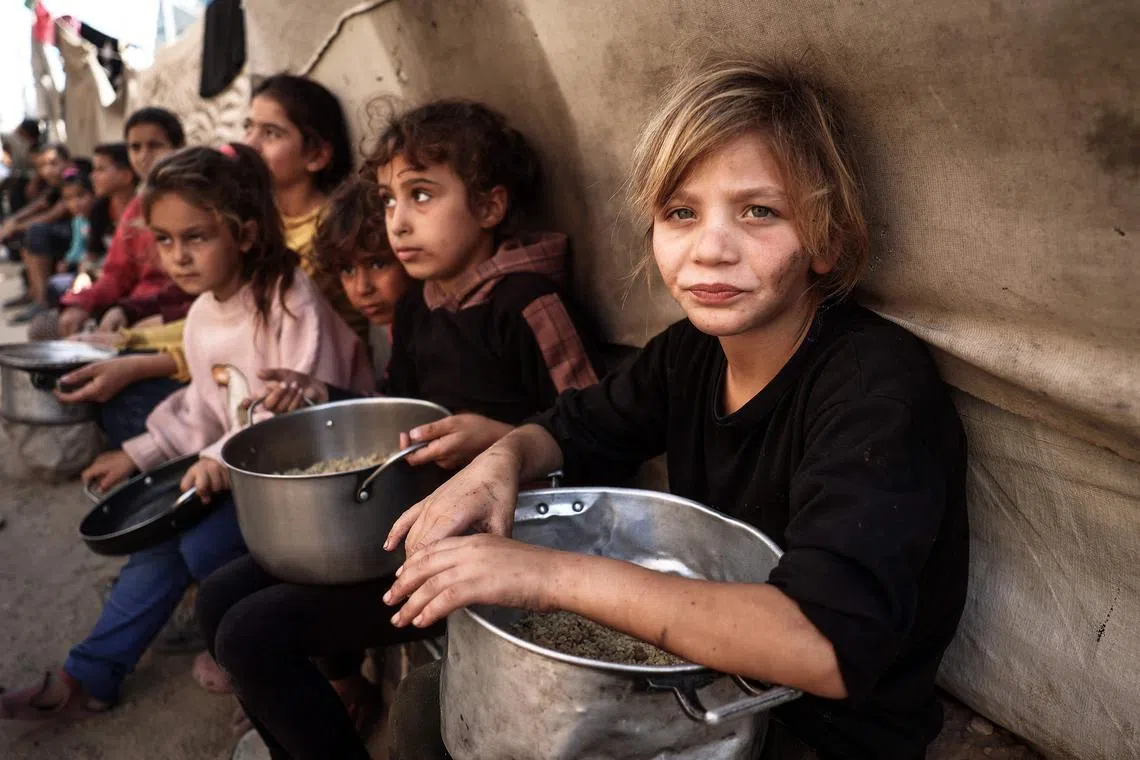Israel rejects ‘biased’ warning of famine in Gaza
Sign up now: Get ST's newsletters delivered to your inbox

Palestinian children collecting food aid at a refugee camp in the central Gaza Strip, on Nov 6.
PHOTP: AFP
JERUSALEM - Israel rejected on Nov 9 a group of global food security experts’ warning of famine in parts of northern Gaza where it is waging war against Palestinian militant group Hamas.
“Unfortunately, the researchers continue to rely on partial, biased data and superficial sources with vested interests,” the military said in a statement.
The independent Famine Review Committee (FRC) said on Nov 8 in a rare alert that there was a strong likelihood of imminent famine in parts of north Gaza
Israel’s military said it had increased aid efforts including opening an additional crossing
When asked about the FRC alert, a US State Department spokesperson said on Nov 9 that Washington was “concerned about the limited amount of aid reaching civilians living in Gaza” and that the report underscored the situation’s urgency.
“We have and will continue to make clear to Israel that they must do more to facilitate aid entry and delivery inside Gaza,” the spokesperson said, adding that the US was working with Israel, the UN, and other partners to find solutions to ramp up aid delivery.
The State Department spokesperson also said Hamas must release the hostages it is holding and not interfere in any humanitarian efforts.
In the last two months, 39,000 trucks carrying more than 840,000 tonnes of food have entered Gaza, it said, and meetings were taking place daily with the UN which had 700 trucks of aid awaiting pickup and distribution.
With some critics decrying a starvation tactic in north Gaza, Israel’s main ally the US has set a deadline within days for it to improve the humanitarian situation or face potential restrictions on military cooperation. REUTERS


